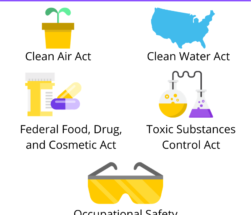Communication is a fundamental skill that distinguishes successful leaders from average ones. As technology continues to advance, the role of effective communication becomes even more crucial in the tech industry. Whether you are managing a team of developers or leading a tech startup, honing your communication skills is paramount to your success as a leader. In this article, we will explore some essential communication skills every tech leader should possess.
Clear and Concise Communication
One of the key aspects of effective communication is clarity. Tech leaders must be able to convey complex ideas in a way that everyone can understand. Avoid using technical jargon that may alienate team members who are not familiar with the intricacies of your field. Instead, communicate your ideas using simple and concise language, ensuring that your message is easily comprehensible to all stakeholders.
Furthermore, clarity also extends to written communication. When sending emails or creating documents, make sure your messages are organized, well-structured, and free from grammatical errors. Clarity in written communication helps avoid misunderstandings and keeps everyone on the same page.
Active Listening
Effective leaders in the tech industry understand that communication is a two-way street. They actively listen to their team members, seeking to understand their perspectives, concerns, and ideas. Active listening involves giving your full attention, maintaining eye contact, and providing verbal and non-verbal cues that show you are engaged.
When a team member comes to you with a problem or idea, take the time to fully comprehend their message before responding. This not only enhances your understanding but also demonstrates respect and appreciation for their contribution. Active listening enables you to build stronger relationships with your team and fosters an environment where open communication thrives.
Adaptability in Communication Styles
Leaders in the tech industry must adapt their communication styles to accommodate diverse individuals and situations. While some team members may prefer direct and assertive communication, others might respond better to a more diplomatic approach. Understanding each team member’s communication preferences allows you to tailor your style accordingly, ensuring effective and harmonious interactions.
Moreover, adaptability also applies to the medium of communication. With the rise of remote work and distributed teams, leaders must be proficient in various communication tools such as video conferencing, project management platforms, and instant messaging apps. By utilizing these tools to their fullest potential, leaders can bridge the gap created by physical distance, maintain effective communication, and keep the team connected.
Constructive Feedback
Providing feedback is an essential part of being a leader, and doing so in a constructive manner is crucial. When offering feedback, focus on the specific behavior or situation rather than attacking the individual. Be tactful, offering suggestions for improvement, and emphasizing the value of the person’s contributions to the team.
Effective leaders also encourage a culture of feedback within their teams. By promoting open and honest communication, team members feel empowered to provide feedback to each other, fostering continuous growth and improvement. Constructive criticism, when delivered with respect and a genuine desire to help, can lead to increased productivity and innovation within a tech team.
Non-Verbal Communication
Non-verbal cues play a significant role in effective communication. As a leader, your body language, facial expressions, and gestures can convey more than words alone. Maintaining an open and approachable posture during conversations creates a comfortable environment for open dialogue.
Additionally, being aware of your non-verbal cues during virtual interactions is equally important. Ensure appropriate camera angles, maintain eye contact, and exhibit attentive body language to demonstrate your engagement. These subtle non-verbal cues help build trust and rapport with your team members, fostering a positive communication environment.
Conclusion
To be a successful leader in the tech industry, developing your communication skills is imperative. Clear and concise communication, active listening, adaptability in communication styles, constructive feedback, and utilizing effective non-verbal cues are all essential skills that contribute to effective leadership. By continuously honing these skills, you can create a strong and collaborative tech team that achieves outstanding results in an increasingly interconnected and technology-driven world.








